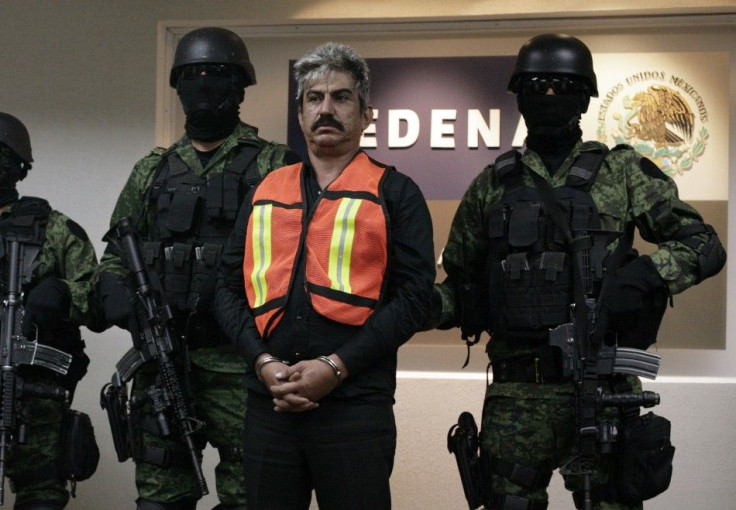Mexico: Congressman's Murder Connected to Drug Cartel?
ANALYSIS

Mexican congressman Moises Villanueva de la Cruz was found murdered on Saturday, his body discovered lying on a highway in the coastal state of Guerrero.
Members of his political party, the Institutional Revolutionary Party, are calling on local authorities to begin a large-scale investigation. They are asking police to question Socorro Sofio Ramirez Hernandez, the current Rural Development Secretary and former holder of Villanueva's congressional seat.
“We publicly demand [Ramirez Hernandez]... be investigated because he is known to have pressured Villanueva at various times to subordinate him to his personal interests,” Efren Leyva, Guerrero chapter head of the party, wrote in a letter to authorities.
The state attorney general said that there was no evidence that Ramirez was involved.
Villanueva went missing on Sept. 4, after he attended a party with friends. His body was found alongside the body of his personal driver, and forensics indicated that the two had been dead for over a week.
It could be simply a personal matter, we don't know, but whatever it is, we want to know soon, said Rep. Carlos Flores Rico of the Institutional Revolutionary Party, according to CNN.
While the murder could be a personal or political matter, it could also likely be tied to drug gang violence. Vicious cartels are so ingrained in many parts of Mexico, that political murders are often related to the narcotics trade.
This and others are such serious occurrences in the life of the country, that it forces all of us to profoundly reflect on how to face, with all the tools of the law within our reach, the scourge of insecurity, Villanueva's party colleagues said in a statement Monday.
Guerrero state is home to some of the fiercest drug cartels in the country. In Acapulco, the state's largest city, authorities recently discovered a mass grave as well as the decapitated heads of five unknown people in a Sam's Club parking lot, both thought to be the work of cartels.
The same weekend Villanueva's body was found, three teachers were shot dead by gunmen in Guerrero. Guerrero is Mexico's third most-violent state, as there were nearly 800 homicides reported there in the first six months of 2011 alone.
Drug violence in Mexico is rampant -- politicians, police, bloggers and civilians are not exempt from the horror. Public figures make easy targets, and the threat of violence combined with large bribes keeps lawmakers in the cartels' pockets. Those who speak out often end up like Villanueva -- kidnapped, sometimes tortured, and then killed.
Since 2010, a total of 19 mayors have been murdered, most recently Zucuaplan Mayor Jose Eduviges Nava Altamirano. The town of Zucuaplan is also in Guerrero.
Additionally, more than 50 police officers have been killed in Mexico since October 2010.
Last week, two people were tortured then hanged from a bridge in Nuevo Laredo for tweeting disparaging messages about drug cartels. The killers left a note bearing the simple signature of Z, which is thought to stand for Los Zetas, a powerful drug cartel founded by former Mexican Army special forces troops. The Zetas control large parts of the Michoacán and Tamaulipas provinces and have labelled bodies and kidnap victims with Z in the past.
A 2006 crackdown against drug trafficking by President Felipe Calderon has led to the arrests of a number of cartel leaders, but it has also caused an explosion of violence that has left 41,000 people dead.
The Mexican army announced Tuesday that it had captured Knights Templar lieutenant Saul Solis Solis in the Michoacan state. The Knights Templar is a new off-shoot of the La Familia cartel in Michoacán, created after La Familia boss Nazario Moreno González was slayed in December 2010.
Solis, also known as El Lince or The Lynx, is the most recent high-profile arrest made by the Mexican authorities, who routinely parade new captures in front of the media as a display of force.
In August, police captured Jose Antonio Acosta Hernandez, known as El Diego, who is thought to be the leader of the La Linea gang, the enforcement arm of the Juarez cartel in the northern state of Chihuahua.
Acosta, who is a former policeman, admitted to ordering the murders of 1,500 people.
While each arrest is a victory for the Mexican government, they have little effect on the drug trafficking problem as a whole. When one boss is sent to prison, another one takes his place. Moreover, drug raids have, on more than one occasion, led to city-sized gun battles between police and gang members.
Additionally, each big-name capture has the potential to open a rift in that specific cartel -- like La Familia and the Knights Templar -- and a fight for power between two deputies can leave hundreds dead in just a short time, and thousands dead in the long term as rival gangs vie for turf.
It is currently unclear if the Villanueva killing is linked to drugs, and considering that 400 police officers and investigators nationwide had been fired over corruption allegations, it might never be clear.
© Copyright IBTimes 2024. All rights reserved.











